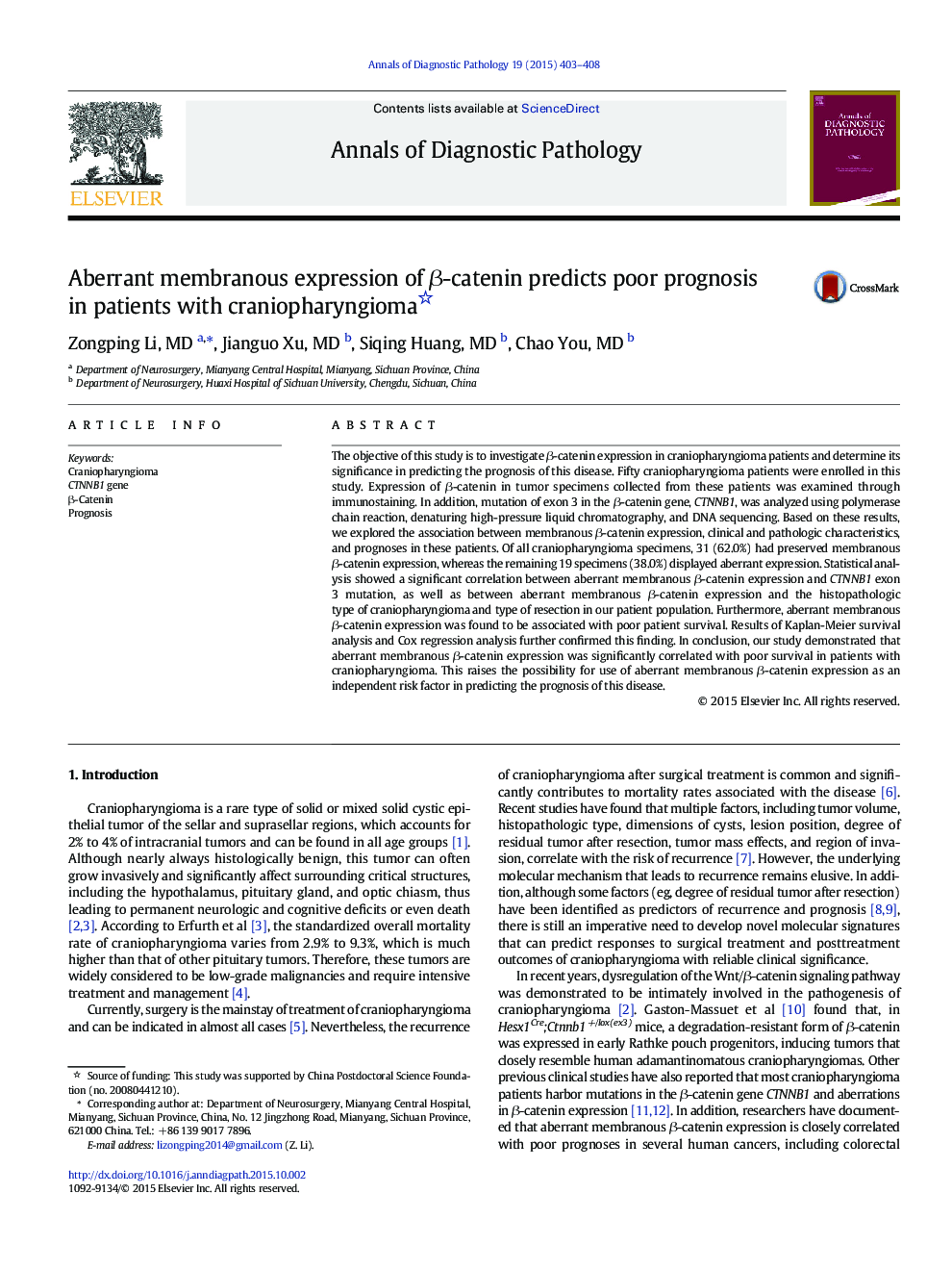| Article ID | Journal | Published Year | Pages | File Type |
|---|---|---|---|---|
| 4129756 | Annals of Diagnostic Pathology | 2015 | 6 Pages |
The objective of this study is to investigate β-catenin expression in craniopharyngioma patients and determine its significance in predicting the prognosis of this disease. Fifty craniopharyngioma patients were enrolled in this study. Expression of β-catenin in tumor specimens collected from these patients was examined through immunostaining. In addition, mutation of exon 3 in the β-catenin gene, CTNNB1, was analyzed using polymerase chain reaction, denaturing high-pressure liquid chromatography, and DNA sequencing. Based on these results, we explored the association between membranous β-catenin expression, clinical and pathologic characteristics, and prognoses in these patients. Of all craniopharyngioma specimens, 31 (62.0%) had preserved membranous β-catenin expression, whereas the remaining 19 specimens (38.0%) displayed aberrant expression. Statistical analysis showed a significant correlation between aberrant membranous β-catenin expression and CTNNB1 exon 3 mutation, as well as between aberrant membranous β-catenin expression and the histopathologic type of craniopharyngioma and type of resection in our patient population. Furthermore, aberrant membranous β-catenin expression was found to be associated with poor patient survival. Results of Kaplan-Meier survival analysis and Cox regression analysis further confirmed this finding. In conclusion, our study demonstrated that aberrant membranous β-catenin expression was significantly correlated with poor survival in patients with craniopharyngioma. This raises the possibility for use of aberrant membranous β-catenin expression as an independent risk factor in predicting the prognosis of this disease.
